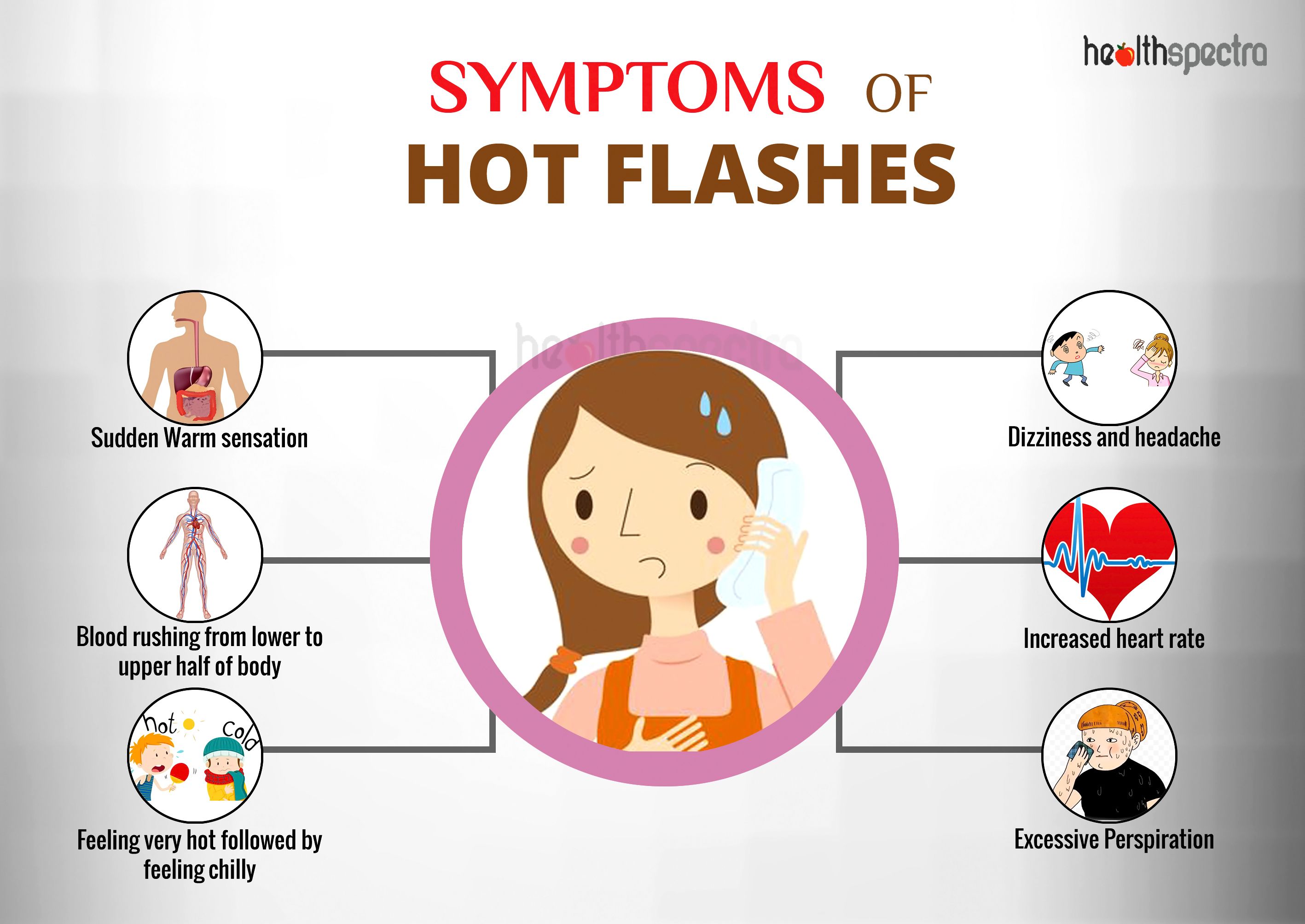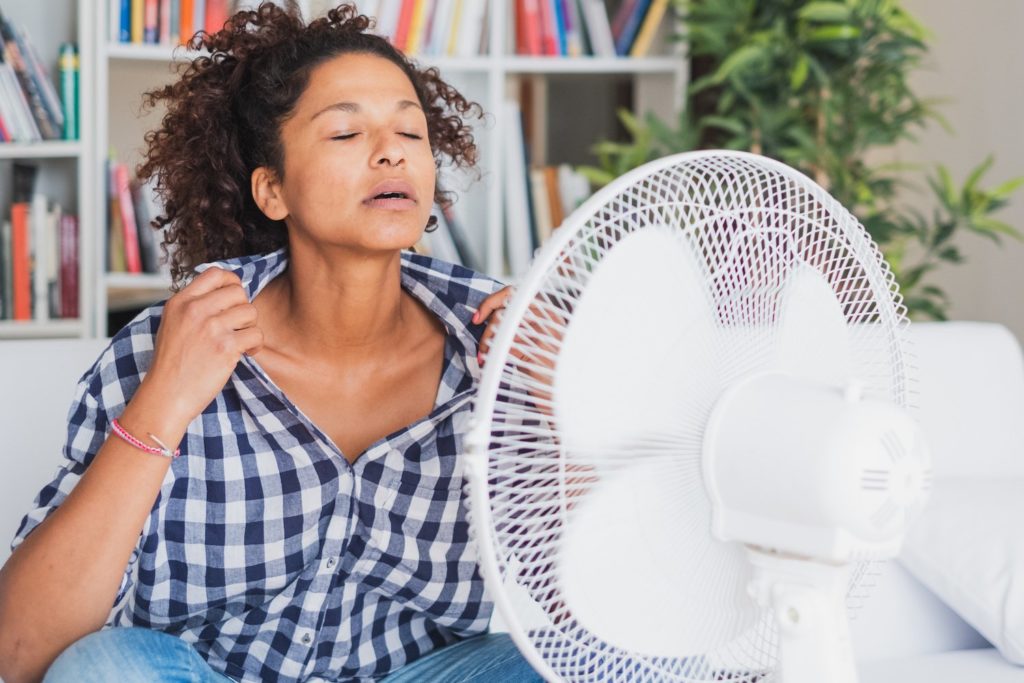Dealing with hot flashes can be a challenging experience, but with the right strategies, you can effectively manage your symptoms and improve your overall well-being. This comprehensive guide will delve into the causes, symptoms, and various approaches to coping with hot flashes, empowering you with the knowledge and tools to navigate this common condition.
Hot flashes are a common symptom experienced by many individuals, particularly during menopause. Understanding the underlying causes and exploring the available treatment options can help you develop a personalized plan to mitigate their impact on your daily life.
Identifying Hot Flashes

Hot flashes are a common symptom of menopause, the transition when a woman’s ovaries stop producing eggs and her menstrual periods end. Hot flashes can also occur during perimenopause, the years leading up to menopause.
Hot flashes are characterized by a sudden feeling of intense heat that spreads over the body, often accompanied by sweating, flushing of the face, neck, and chest, and a rapid heartbeat. They can last anywhere from a few seconds to several minutes and can occur several times a day or night.
Hot flashes can be triggered by various factors, including hormonal changes, certain medications, caffeine, alcohol, and spicy foods.
Impact on Daily Life
Hot flashes can significantly impact a woman’s daily life and well-being. They can disrupt sleep, leading to fatigue and irritability. Hot flashes can also cause discomfort and embarrassment in social situations, affecting a woman’s confidence and quality of life.
Understanding the Causes

Hot flashes are caused by hormonal changes that occur during menopause, the natural process in which a woman’s ovaries stop producing eggs and her menstrual periods end. During menopause, the levels of the hormone estrogen decline, which can trigger a series of physical and emotional changes, including hot flashes.
Role of Age and Menopause, Dealing with hot flashes
The average age for menopause is 51 years old. However, some women may experience menopause earlier or later than this age. The years leading up to menopause, known as perimenopause, are often characterized by irregular menstrual periods and other symptoms, including hot flashes.
Other Factors
Besides menopause, other factors can contribute to hot flashes, including:
- Medical conditions such as thyroid problems or diabetes
- Medications such as antidepressants or chemotherapy drugs
- Certain lifestyle factors, such as smoking or excessive alcohol consumption
Managing Hot Flashes
Managing hot flashes can involve a combination of lifestyle modifications, herbal remedies, dietary changes, stress management techniques, and medications. These approaches aim to reduce the frequency, intensity, and duration of hot flashes.
Lifestyle Modifications
Certain lifestyle modifications can help reduce hot flashes. These include:
- Maintaining a healthy weight: Excess weight can contribute to hot flashes.
- Dressing in layers: This allows for easy adjustment as body temperature fluctuates.
- Staying hydrated: Drinking plenty of fluids, especially water, helps regulate body temperature.
- Exercising regularly: Exercise can help reduce stress and improve circulation.
- Getting enough sleep: Sleep deprivation can worsen hot flashes.
Herbal Remedies and Dietary Changes
Some herbal remedies and dietary changes may provide relief from hot flashes:
- Black cohosh: This herb has been shown to reduce hot flash frequency and intensity.
- Red clover: Red clover contains isoflavones, which may help balance hormones.
- Soy: Soy products contain isoflavones, which may also help reduce hot flashes.
- Flaxseed: Flaxseed is a good source of omega-3 fatty acids, which may help reduce inflammation.
Stress Management Techniques
Stress can trigger hot flashes. Managing stress through techniques such as yoga, meditation, or deep breathing exercises can help reduce their frequency and severity.
Medications
Medications may be prescribed to treat hot flashes when other approaches are not effective. Common types of medications include:
| Medication | Benefits | Side Effects |
|---|---|---|
| Hormone replacement therapy (HRT) | Effective in reducing hot flashes and other menopausal symptoms | Increased risk of breast cancer, blood clots, and heart disease |
| Selective serotonin reuptake inhibitors (SSRIs) | Effective in reducing hot flashes and mood symptoms | Nausea, diarrhea, sexual dysfunction |
| Gabapentin | Effective in reducing hot flash frequency and severity | Dizziness, drowsiness, weight gain |
| Clonidine | Effective in reducing hot flash severity | Dizziness, dry mouth, constipation |
Alternative Therapies: Dealing With Hot Flashes

Alternative therapies, such as acupuncture, yoga, and meditation, have gained recognition for their potential in alleviating hot flashes. These therapies aim to regulate body temperature and reduce symptoms through various mechanisms.
Acupuncture
Acupuncture involves the insertion of thin needles into specific points on the body. It is believed to stimulate the release of endorphins, which have pain-relieving and mood-boosting effects. In the context of hot flashes, acupuncture may help regulate body temperature by targeting points that influence the hypothalamus, a brain region involved in temperature control.
Yoga
Yoga combines physical postures, breathing exercises, and meditation. It promotes relaxation, reduces stress, and improves circulation. Certain yoga poses, such as “cooling poses” that involve forward folds or inversions, may help alleviate hot flashes by calming the nervous system and promoting heat dissipation.
Meditation
Meditation practices, such as mindfulness and deep breathing exercises, can help manage stress and anxiety, which are often associated with hot flashes. By promoting relaxation and regulating the nervous system, meditation may reduce the frequency and severity of hot flashes.
Medical Interventions
When lifestyle modifications and alternative therapies fail to provide adequate relief from hot flashes, medical interventions may be considered.
Hormone replacement therapy (HRT) is the most common medical treatment for hot flashes. HRT involves taking estrogen, either alone or in combination with progestin, to replace the hormones that decline during menopause. HRT can effectively reduce the frequency and severity of hot flashes, but it also carries potential risks, including an increased risk of blood clots, heart disease, and breast cancer.
Other Medical Treatments
- Selective serotonin reuptake inhibitors (SSRIs):These antidepressants have been shown to be effective in reducing hot flashes in some women.
- Clonidine:This medication is used to treat high blood pressure, but it can also be effective in reducing hot flashes.
- Gabapentin:This medication is used to treat seizures, but it can also be effective in reducing hot flashes.
Surgical Procedures
In severe cases of hot flashes, surgical procedures may be considered. These procedures include:
- Oophorectomy:Removal of the ovaries, which stops the production of estrogen and progesterone.
- Hysterectomy:Removal of the uterus, which can also reduce hot flashes.
- Endometrial ablation:Removal of the lining of the uterus, which can reduce hot flashes in women who have not had a hysterectomy.
Quick FAQs
What are the most common symptoms of hot flashes?
Hot flashes are characterized by a sudden sensation of intense heat that spreads over the body, often accompanied by sweating, flushing, and a rapid heartbeat.
How long do hot flashes typically last?
Hot flashes can vary in duration, but they typically last for a few minutes. However, some individuals may experience more prolonged or frequent episodes.
What lifestyle changes can help reduce hot flashes?
Lifestyle modifications that may help reduce hot flashes include managing stress, maintaining a healthy weight, avoiding triggers such as caffeine and alcohol, and ensuring adequate sleep.